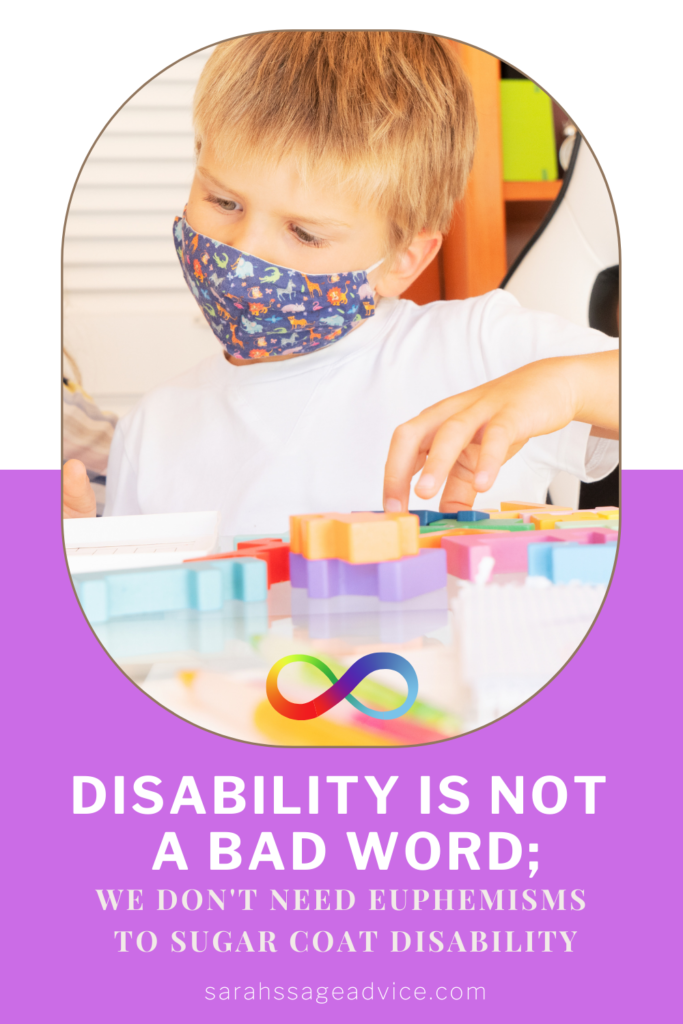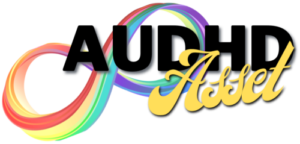Person first language is taught in most health profession programs. That is why doctors, teachers, speech language pathologists, occupational therapists, will likely call your child or yourself a “child WITH autism.” This movement began in 1974, seeking to empower individuals by placing an emphasis on their individuality and personhood over their disability.
Since this time the community and culture of disability has changed. With the inclusion and integration of disabled individuals came about the rise in their own self-advocacy.
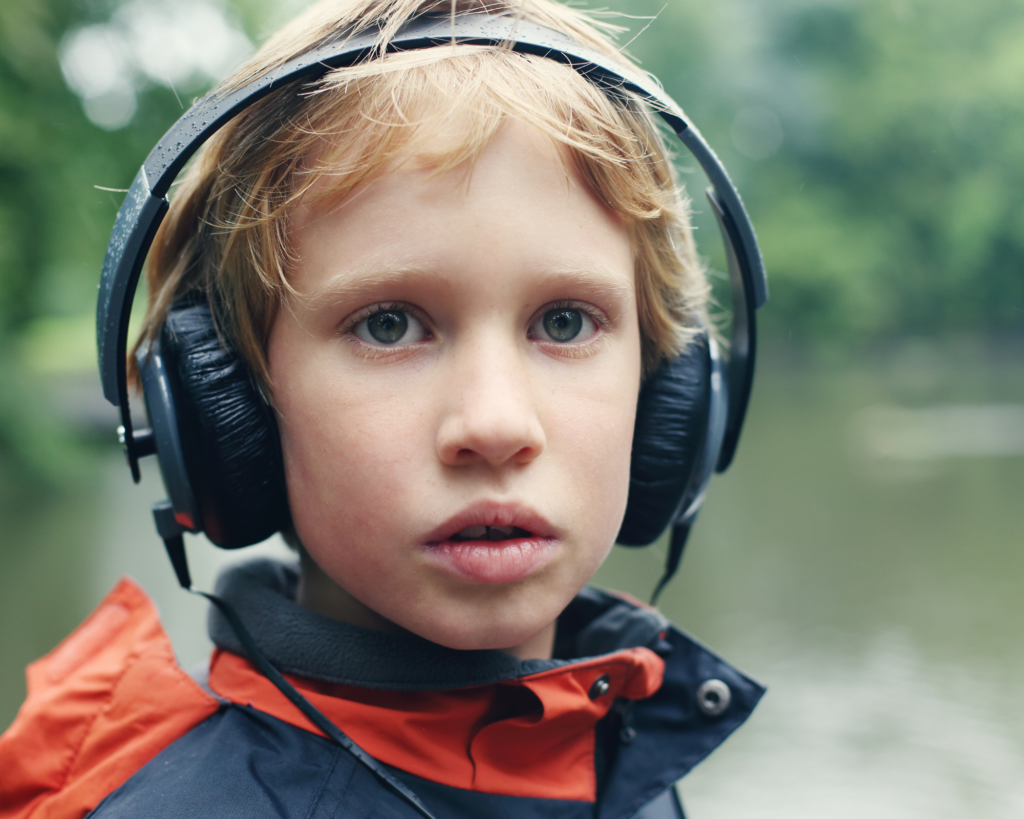
Although the person-first language is vastly disliked by the disabled community, especially the autistic community, many good things came from this time in the 70s. In 1975 the Developmental Disabilities Assistance and Bill of Rights Act was enacted. The Education for Handicapped Children Act was signed into law which guarantees a free, appropriate, public education for all children with disabilities and the social model of disability is created.
What language is preferred by the autistic community?
Identity-first language is largely preferred by the autistic community. Instead of saying “person with autism” identity-first language emphasizes that the disability plays a role in who the person is, “autistic person.” Instead of separating the disability by saying “with autism” identity-first language recognizes you cannot just separate autism because it plays a role in who they are, how they perceive the world, how they interact with others, etc.
This however is not the only way many medical professionals, public school systems, educators, still bypass disability. Other terms are still used today that seek to change perspective on disability as if it’s negative. Terms such as “special needs” or “differently-abled” are still widely accepted. If you search acceptable terms for disability, you’ll find article after article claiming these things as not only acceptable but preferred then simply saying a person is disabled. These articles are looking from the medical and professional perspective that is still being taught today.
Why not “special needs” or “differently-abled”?
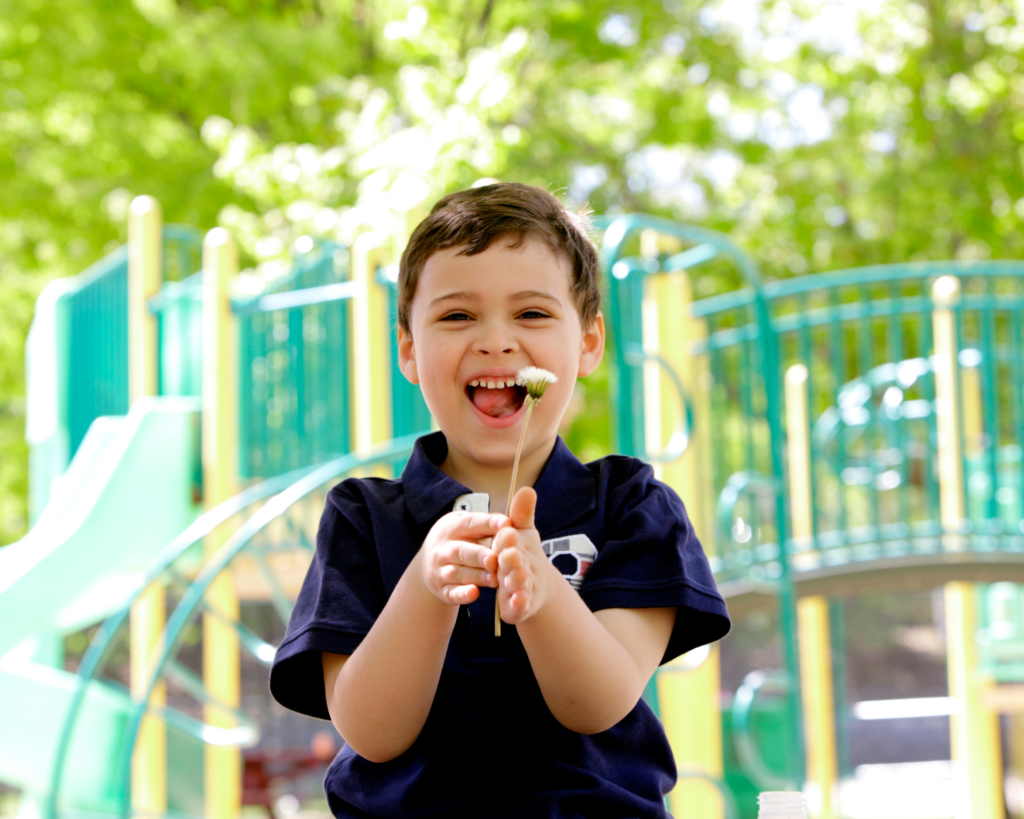 In the US, “special needs” was a term derived from the language in Adoption and Safe Families Act of 1997. It was a diagnosis to classify children needing more services. In education it has specifically been used as a short form for special education needs. “Special needs” has become a euphemism or “an expression used in place of words or phrases that otherwise might be considered harsh or unpleasant.” Euphemisms for disability however are condescending, infantilizing, patronizing and inappropriate. It contributes to a disability stigma. Using the euphemism of “differently-abled” is no different. Where the original intent of person-first language and euphemisms for disability may be to place an emphasis on the personhood over disability, it often does quite the opposite.
In the US, “special needs” was a term derived from the language in Adoption and Safe Families Act of 1997. It was a diagnosis to classify children needing more services. In education it has specifically been used as a short form for special education needs. “Special needs” has become a euphemism or “an expression used in place of words or phrases that otherwise might be considered harsh or unpleasant.” Euphemisms for disability however are condescending, infantilizing, patronizing and inappropriate. It contributes to a disability stigma. Using the euphemism of “differently-abled” is no different. Where the original intent of person-first language and euphemisms for disability may be to place an emphasis on the personhood over disability, it often does quite the opposite.
How should you change your own language to be more accepting and understanding of disability?
My first suggestion above all else is to let people define themselves. If an autistic individual tells you “I’m autistic” DO NOT try to correct them by saying “you’re a person with autism.” If a parent says their child is “autistic” DO NOT emphasize the child is “special needs” in return. No matter what you were taught formally, whether you were in medical school, becoming a teacher, SLP, OT, etc, DO NOT correct the language of a disabled person and respect the way they wish to be addressed.
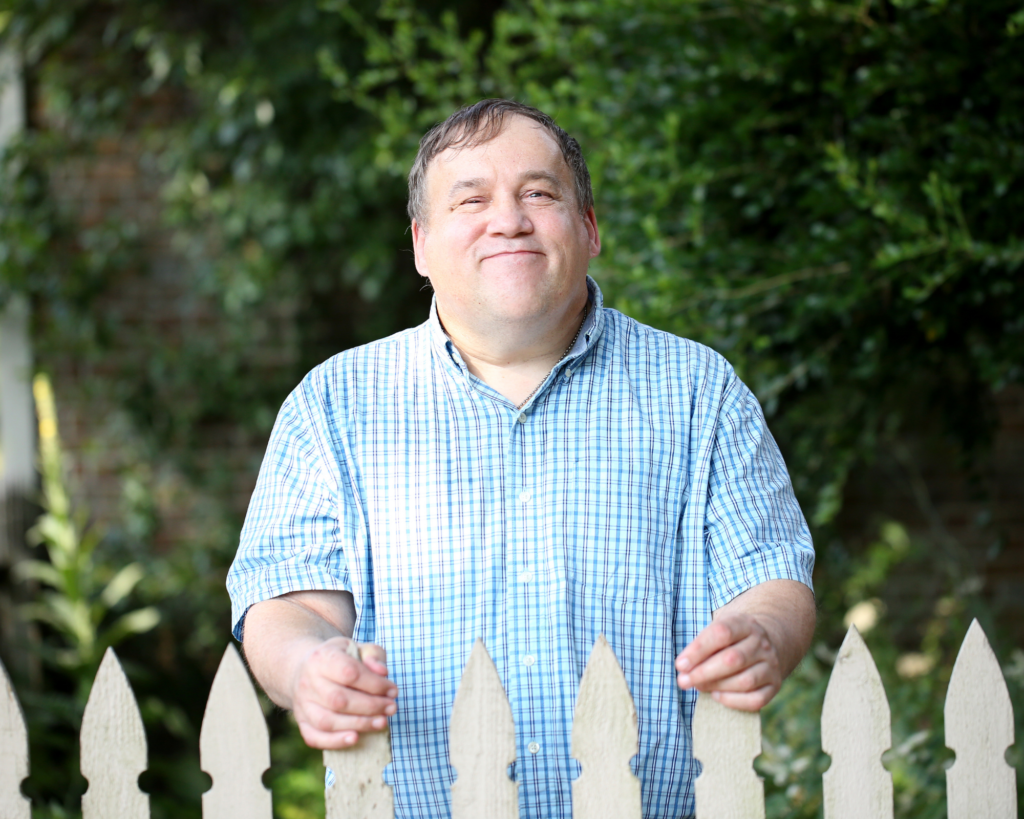 My wish, as parents, teach your kids correct and distinct terminology as well. When your child comes up to you not understanding why the child, they tried to play with on the playground didn’t respond to them, DO NOT tell them they are “special needs,” be honest. “That child is autistic, and she just doesn’t speak much” you can even emphasize that you’re proud they were kind and tried to play. Even remind them that the child probably just isn’t sure how to initiate playing themselves it doesn’t mean they don’t want to be friends and play. Because that is often true. Teaching terms like “special needs” infantilizes the child and disabled individual and when we teach other children this, they grow up to continue infantilizing disabled and Autistic adults.
My wish, as parents, teach your kids correct and distinct terminology as well. When your child comes up to you not understanding why the child, they tried to play with on the playground didn’t respond to them, DO NOT tell them they are “special needs,” be honest. “That child is autistic, and she just doesn’t speak much” you can even emphasize that you’re proud they were kind and tried to play. Even remind them that the child probably just isn’t sure how to initiate playing themselves it doesn’t mean they don’t want to be friends and play. Because that is often true. Teaching terms like “special needs” infantilizes the child and disabled individual and when we teach other children this, they grow up to continue infantilizing disabled and Autistic adults.
To do one better. Just remember, “disability” or “disabled” are not negative. They should not be considered wrong, different, or special. Disability needs to be seen as just a part of the human experience.
Sarah
Similar Posts:
We Don’t Need Awareness, We Need Acceptance
Common Misconceptions About Autism
